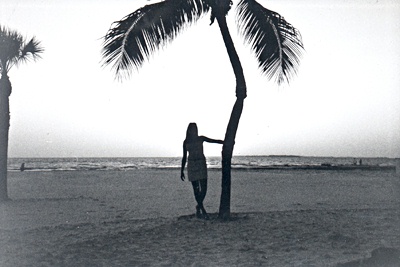All Nonfiction
- Bullying
- Books
- Academic
- Author Interviews
- Celebrity interviews
- College Articles
- College Essays
- Educator of the Year
- Heroes
- Interviews
- Memoir
- Personal Experience
- Sports
- Travel & Culture
All Opinions
- Bullying
- Current Events / Politics
- Discrimination
- Drugs / Alcohol / Smoking
- Entertainment / Celebrities
- Environment
- Love / Relationships
- Movies / Music / TV
- Pop Culture / Trends
- School / College
- Social Issues / Civics
- Spirituality / Religion
- Sports / Hobbies
All Hot Topics
- Bullying
- Community Service
- Environment
- Health
- Letters to the Editor
- Pride & Prejudice
- What Matters
- Back
Summer Guide
- Program Links
- Program Reviews
- Back
College Guide
- College Links
- College Reviews
- College Essays
- College Articles
- Back
Beach Bum
I slowly lean back on the smooth, scorching hot cushion of the tiny speed boat and feel the warmth of the sun soaking into my skin. I tie my hair back in a loose ponytail in an attempt to stop it from blowing in the wind. Leaning over the side of the boat, I feel the cool mist of the water on my skin. As the boat continues down the coast of Clearwater Beach, Florida, the familiar sights and sounds overwhelm me. I take in a deep breath of the warm, salty air. Being on this boat is one of the rare occasions when my mind is not clouded with worries. I drift off in reverie about the numerous sunny days spent on this shoreline.
For as long as I can remember, I have been a beach lover. I lived in Tampa, Florida, for a significant amount of my childhood. Some of my earliest memories took place on the beach, whether I was building sandcastles with my brother, collecting shells on the shoreline, or watching the sun set from the pier. Something about experiences like these throughout my childhood have really connected and drawn me to the beach. Whatever it is, I know one thing for sure – the long days spent on those Florida beaches have had an impact on my views of nature and have shaped who I am today.
For many people, the beach is a rare sight. It is something they maybe see once or twice a year, if they’re lucky. It is a place where they can travel to take a break from their daily routines and just relax for a few days. I could never imagine being one of those people, a stranger to the beach. When I reflect on my childhood, almost all of my memories of nature somehow encompass the sights, smells, and sounds of the beach. I can’t think of any other natural landscape that holds as many different levels of life as the beach. This is the only place where complex land creatures can encounter diverse marine life at a single location: the shoreline.
As the boat encounters a wake, I am suddenly jolted from my reminiscing as a splash of water drenches my face. I lick my lips and taste the familiar salt water on my tongue. I close my eyes, only to be disrupted by my brother jumping up and down and yelling as he points across the horizon. I make my way to his location at the front of the boat and join him in his excitement as we stare in awe at the family of dolphins only a few feet from our boat. We stand there, stunned, watching as these four magnificent creatures swim around and jump playfully out of the water time and time again. I find that I am experiencing what Rick Bass would call a “lightning spark epiphany” of nature. Bass defines these moments as “....an experience more profound somehow than even memory itself, so that the Event seems to have somehow always been within you, waiting only to occur....” (2). It was in that moment I truly realized how much I appreciate the ocean and all of its inhabitants, something that I had often taken for granted.
This experience showed me that there is a whole other world that lives right beneath us, a world whose inhabitants are endangered now more than ever. I believe that we, as humans, overlook so many important components of nature. In order to fully appreciate nature, we need to have a certain understanding of its beauty, which I believe is acquired by going through these rare epiphanies. As stated by Lewis Thomas in “Lives of a Cell,” “Man is embedded in nature” (358). This quote not only summarizes the circumstances under which God created us, but it also speaks to me on a personal level. It is a constant reminder to me that everything we do as humans somehow impacts other species, both terrestrial and aquatic. We must be conscious of this great tapestry of life if we wish to continue experiencing these lightning spark moments, as well as those daily defining moments of nature in the future.
Works Cited
Bass, Rick. “A Texas Childhood.” The Best American Spiritual Writing 2004. Philip Zaleski, ed. Boston: Houghton Mifflin, 2004.
Thomas, Lewis. “The Lives of a Cell” The Best American Essays of the Century. Joyce Carol Oates and Robert Atwan, eds. Boston: Houghton Mifflin, 2000.

Similar Articles
JOIN THE DISCUSSION
This article has 0 comments.
